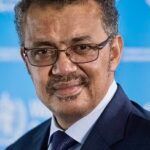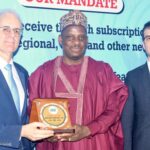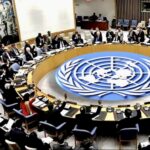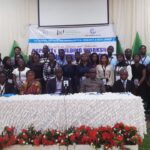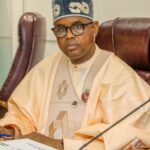By Tosin Kolade
Stakeholders in Nigeria’s sanitation sector have called for a shift towards Market-Based Sanitation (MBS) as a more effective means of improving access to safe and dignified toilets across the country.
With Nigeria struggling to meet its Open Defecation-Free (ODF) targets, experts say MBS could be instrumental in accelerating progress towards healthier and cleaner environments for millions of citizens.
At a high-level seminar held in Abuja on Wednesday, officials from tiers of government, development partners and civil society organisations gathered to assess the country’s sanitation efforts and explore private sector-led solutions.
Mr Shadrach Guusu, Head of Programmes at Self Help Africa, described the seminar as a timely and strategic engagement for the sector.
“This seminar provides a valuable platform to reflect on current MBS efforts, evaluate existing approaches, and introduce new insights from global experts such as PSI.
“It also enables us to strengthen collaboration and capacity development among government bodies, civil society, private actors, and development partners laying a stronger foundation for scaling MBS in Nigeria”.
Guusu underscored the need to confront tough questions: “How far have we come with market-based sanitation, and what must we do differently to achieve the 2030 target?”
He noted that MBS aims to provide households and communities, especially those underserved with access to improved toilet facilities through affordable and sustainable private sector-driven models.
He added that in spite ongoing initiatives, inadequate sanitation remains widespread in homes, markets, schools, and public spaces across the country.
According to him, the seminar formed part of the WASH Systems for Health Project, currently being implemented in Cross River and Kano states in partnership with other stakeholders.
 Mr Chukwuma Nnanna, Team Lead at Toilet Pride Initiative, explained that their work focuses on addressing the root causes of poor sanitation and the lack of accessible and affordable toilet options.
Mr Chukwuma Nnanna, Team Lead at Toilet Pride Initiative, explained that their work focuses on addressing the root causes of poor sanitation and the lack of accessible and affordable toilet options.
“Open defecation is not always due to poverty, many families simply don’t know where to get a toilet or that low-cost options exist.
“Toilet Pride is helping bridge that gap by connecting households to suitable products and reliable installers”:
He added that MBS represents a shift from traditional approaches, which often encouraged toilet construction without addressing availability, affordability, or consumer support.
“Now, we offer families a range of products such as those from manufacturers like Lixil, and guide them from product awareness to installation.
”This model, we believe, will help move millions of Nigerians up the sanitation ladder”.
The seminar also featured global experts from Population Services International (PSI), who shared lessons from more than a decade of experience in strengthening sanitation markets.
 Mr John Sauer, Deputy Director of PSI’s WASH Programmes and Lead Facilitator at the event, noted the importance of knowledge exchange and market development.
Mr John Sauer, Deputy Director of PSI’s WASH Programmes and Lead Facilitator at the event, noted the importance of knowledge exchange and market development.
“PSI is pleased to share over 12 years of experience in market-based sanitation with Nigeria’s WASH sector.
“We believe that by applying systems thinking and market-driven approaches, Nigeria is well-positioned to fast-track universal access to safe, sustainable sanitation,” Sauer said
Earlier, Mrs Iquo Bassey, a representative from the Cross River Rural Water and Sanitation Agency, noted that while six local government areas have been declared ODF, sustaining these gains has been challenging.
She described the meeting as timely, expressing hope that it would help address poor sanitation outcomes and promote long-term sustainability through shared learning.
The News Agency of Nigeria (NAN) reports that albeit the federal government’s Clean Nigeria: Use the Toilet campaign, launched in 2019, the country remains off track to meet its 2025 goal of eliminating open defecation.
With over 48 million Nigerians practising open defecation, experts warn the country may miss its 2030 SDG 6 deadline without a major strategy shift. (NAN)
Edited by Ismail Abdulaziz





